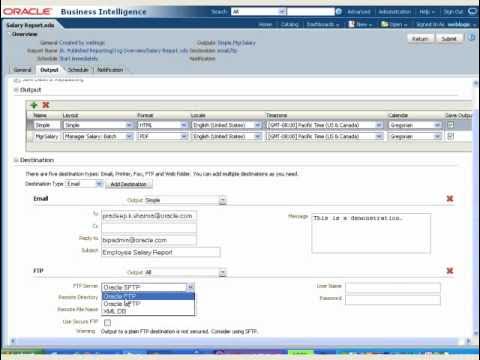How to Present a MIND-BLOWING Software Demo That Closes Sales
Summary
TLDRThis video script provides a comprehensive guide on how to deliver a successful product demo. It emphasizes the importance of discovery before the demo, understanding customer pain points, and customizing the presentation to meet their specific needs. Key advice includes: preparing thoroughly, engaging attendees, focusing on relevant use cases, and highlighting emotional pain points to capture attention. It also stresses the importance of rehearsing, managing distractions, and ensuring clear next steps to avoid deal stagnation. Ultimately, the script promotes active engagement, personalization, and preparation for a compelling and effective demo.
Takeaways
- 🚗 Buyers need to see the product in action before they commit, just like seeing a car before buying it.
- 🔍 Discovery should always come before the demo; without understanding the client's pain points, a demo lacks focus.
- 📝 Preparation is key: review past notes, recap emails, and research attendees before the demo to stay aligned with the client's needs.
- 🧑🤝🧑 New stakeholders often join demos, so reach out to understand their priorities and adjust the demo to meet their needs.
- 🖼️ Use a recap slide at the start of the demo to summarize the client's challenges and goals, allowing them to add or adjust any information.
- 🎯 Customize the demo to the specific client’s business needs instead of using a generic version built for other customers.
- 📊 Use relevant industry figures and client examples to help them visualize how your solution fits their business.
- 🎤 Rehearse the demo, focusing on smooth navigation and important talking points to avoid wasting time or getting distracted.
- 💡 During the demo, emphasize key features by slowing down your speech, drawing attention to important points, and asking for feedback.
- 📧 After the demo, send personalized recap emails to each attendee to maintain engagement and drive next steps.
Q & A
Why is discovery important before a demo?
-Discovery helps you understand the customer's pain points and needs, allowing you to tailor the demo to their specific challenges. Without discovery, the demo may be irrelevant or misaligned with their objectives.
What should you do if new stakeholders join the demo call?
-Reach out to the new stakeholders to understand their specific interests and concerns. Incorporate their input into the agenda and ensure the demo addresses their needs as well.
Why is it important to create a recap slide before starting a demo?
-A recap slide summarizes what you've learned from discovery, ensuring alignment with the customer’s goals and challenges. It also gives stakeholders a chance to add or correct information, making the demo more relevant.
How should you handle customization of a demo for different customers?
-Tailor the demo to the customer's industry and specific pain points. Avoid using a generic demo, and instead, use examples, terminology, and metrics that are directly relevant to their business.
What are some key distractions to avoid during a demo?
-Ensure your screen is free of unnecessary browser tabs, and turn off notifications from Slack, email, or LinkedIn. These distractions can throw you off and irritate the prospect.
How can you maintain engagement during a demo if you notice attendees losing focus?
-Stop talking and use a pause to regain attention. Call on specific individuals by asking direct questions related to their role, or check in by asking if the solution presented is addressing their concerns.
What is the role of emotion in a successful demo?
-Focusing on emotional pain points creates a compelling story and provokes a desire for change. Features alone don’t drive decisions; it’s the connection between the product and how it solves the buyer's problems that matters.
Why is it beneficial to have a co-pilot during a demo?
-A co-pilot can monitor the attendees’ reactions while you focus on presenting. This allows for a better understanding of engagement levels and helps manage multiple questions or technical issues more effectively.
What is an effective way to close a demo?
-Conclude with a clear next step. Suggest that the client will likely need internal discussions and guide them through the next phase. Asking directly about their thoughts on proceeding shows confidence and direction.
Why should you send individual recap emails after the demo?
-Recap emails keep each stakeholder engaged, summarize key points discussed, confirm next steps, and open the door for further questions. This helps keep the momentum going and ensures everyone is aligned.
Outlines

Cette section est réservée aux utilisateurs payants. Améliorez votre compte pour accéder à cette section.
Améliorer maintenantMindmap

Cette section est réservée aux utilisateurs payants. Améliorez votre compte pour accéder à cette section.
Améliorer maintenantKeywords

Cette section est réservée aux utilisateurs payants. Améliorez votre compte pour accéder à cette section.
Améliorer maintenantHighlights

Cette section est réservée aux utilisateurs payants. Améliorez votre compte pour accéder à cette section.
Améliorer maintenantTranscripts

Cette section est réservée aux utilisateurs payants. Améliorez votre compte pour accéder à cette section.
Améliorer maintenantVoir Plus de Vidéos Connexes

How to create a Binance futures demo account | trade crypto on a Binance demo account

Fiz um CRIATIVO COMPLETO usando a nova IA da VEO3 (vou rodar no Meta Ads)

Salesforce Virutal Internship Project Demo Video | Guideliness | Salesforce | Internship | Trailhead

How To ACTUALLY Start A Clothing Brand In 2024! (BEGINNER COURSE)

ADVERTISEMENT - BAHASA DAN SASTRA INGGRIS LINTAS MINAT KELAS 10 (X)

Oracle BI Publisher - Scheduling
5.0 / 5 (0 votes)
